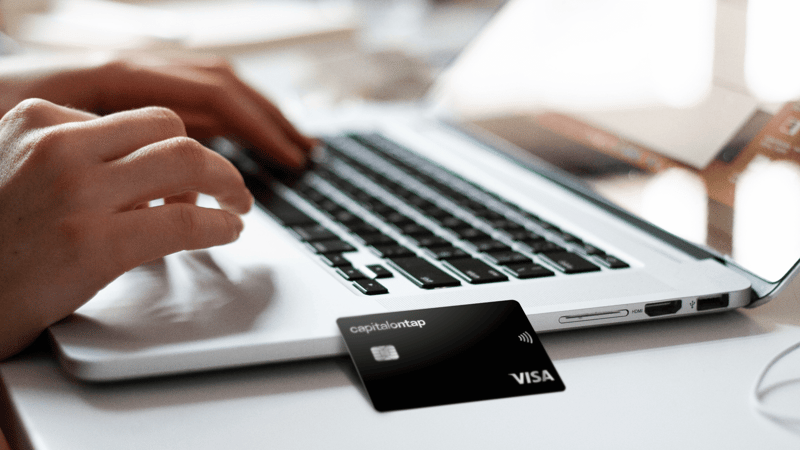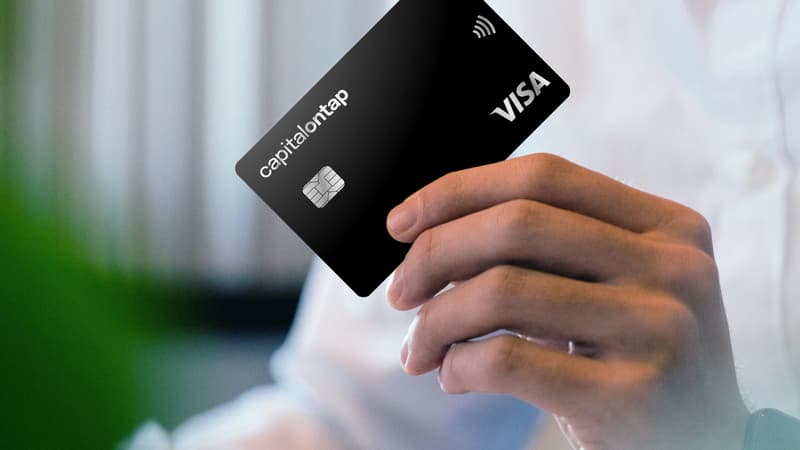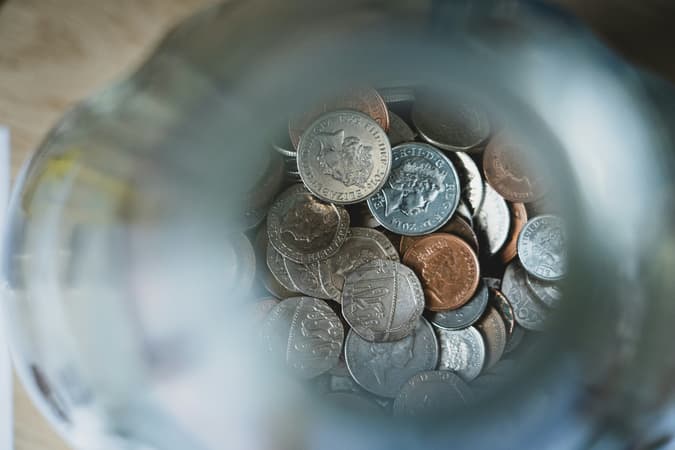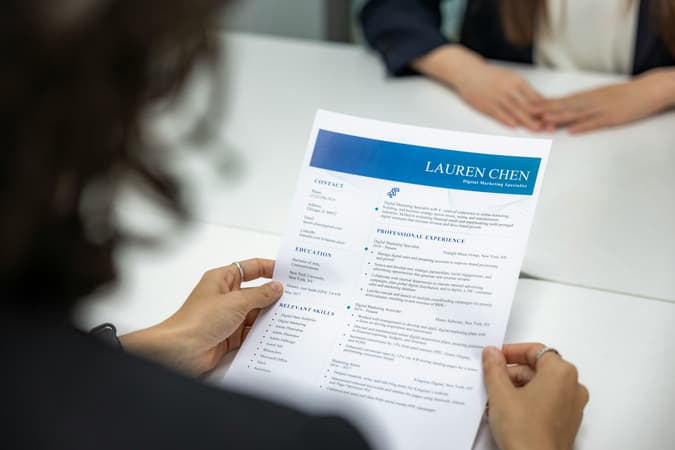Jump to a section
Business credit cards can be a lifeline for small businesses’ cash flow by providing flexibility during tricky periods and assist in managing day-to-day expenses. However, if your business cannot pay its business credit card debts, it’s crucial to know who is responsible for this debt, and any potential late fees incurred.
Responsibility for business credit card debt
Who is responsible for business credit card debt will depend on the structure of your business and the considerations and expectations associated with your card:
Sole trader
Sole traders are personally responsible for their business’ credit card debts. This is because, legally speaking, you and your business are considered the same entity. This means you are responsible for every penny that your business cannot pay.
Since there is no legal distinction between you and your company, your personal and business finances are intertwined. Business debt is essentially treated as personal debt, and it will affect your personal credit score accordingly. It's crucial to note that this debt is not directly tied to your company alone. Regardless of whether your business succeeds or fails, you will be held accountable for repaying the debts.
Partnerships
If you have a partnership business with other individuals, you all share responsibility for its business credit card debts.
Initially, your credit card provider will expect the business to pay its own debts. However, if the business is unable to make the payments, the lender will likely ask the individual partners to step in and pay.
Partners in a business are "jointly and severally liable" for the debts of the partnership. This means that the lender can take legal action against any partner, including ‘silent partners’ who are not actively involved in the day-to-day operations of the business.
The lender can also pursue multiple partners simultaneously. This is the case even if there is a partnership agreement in place that states otherwise. If one partner ends up paying more than their agreed share of the business debts, they have the right to take legal action against another partner to recover the money owed.
In summary, in a partnership, all partners are collectively responsible for the business debts, and the lender can pursue any partner individually or multiple partners together, regardless of their level of involvement or any partnership agreements.
Private limited companies (Ltd)
If your business is registered as a private limited company, this means you and your business are separate legal entities. Therefore, if your business cannot pay its credit card debts, you are not usually personally responsible for paying them.
This is called limited liability protection. You are protected from personal liability for business debts as long as:
- The debt is related to your business and used for legitimate business purposes. If you use the business credit card to buy something for personal use, such as a TV for your home, and take on debt for it, you will be personally responsible for that debt. If you can't repay it, the creditor can claim the asset, e.g. the TV, you purchased
- The debt is not backed by a personal guarantee or your personal assets as collateral. If you have given a personal guarantee or pledged your personal assets as security for the debt, you can be held personally liable for it.
- You haven't lost your limited liability protection as an Ltd. There are certain circumstances where your limited liability protection can be lost, such as fraudulent activities or not maintaining proper corporate formalities. If any of these reasons apply, you may be personally liable for the business debts.
By meeting these conditions, you can maintain the protection that separates you from your business’ debts.
Considerations and expectations
As well as your business structure, there are several other things you should be aware of when understanding who is responsible for business credit card debt:
Personal guarantees
A personal guarantee is a type of agreement between a lender and a business owner or director. It means that if the business is unable to make the required payments, the individual who signed the personal guarantee becomes responsible for repaying the finances owed.
When you apply for a business credit card, the card provider may ask you to provide a personal guarantee. This means that they want a promise from you that you will repay the balance on the card, even if your business goes bankrupt or can't make the payments. It's a way for the card provider to ensure they will still get their money back, no matter what happens to your business.
A personal guarantee doesn't show up directly on your credit report. But it's essential to understand that your personal credit file is different from your business credit file. These two types of credit files are kept separate and have their own records and information.
Taking out a business credit card without a personal guarantee may seem appealing because it means you won't be responsible for any debts incurred. However, it can be challenging to find card providers who offer such cards without a personal guarantee. This is especially true for small business owners. Most lenders typically require a personal guarantee as a condition for issuing a business credit card.
The key takeaway: if you sign a personal guarantee, you are personally liable for repaying the credit card debt.
Co-signed credit cards
When you co-sign a credit card for someone, you are taking on the responsibility to ensure that the debt is repaid on time and in full. This means that if the person you co-signed for fails to make the payments, you are legally obligated to repay the debt on their behalf.
This also means that the debt will be reflected on your credit history, alongside the primary borrower's information. So if there are any issues with repayments or the debt goes into collections, it will negatively impact your creditworthiness. This can make it difficult for you to obtain new credit, such as loans or a business credit card, for your small business.
Fraudulent and unauthorised charges
If your business credit card is used to make fraudulent or unauthorised charges, it is very important that you promptly report any suspicious activity to your card provider so they can investigate whether you are responsible for the debt.
If you notice any transactions on your Capital on Tap account that you do not recognise, please check the name of the merchant via a Google search. Please also ask any additional cardholders if they recognise the transactions.
If you still do not recognise the transactions, please log in to your account immediately, head over to the Cards page and freeze the card in question. Please then give us a call on 020 8962 7401.
Best practices and tips
When it comes to effectively managing your business credit card and any potential debt, there are several best practices and tips that can guide you towards financial stability:
Proper debt management
To prevent your business accruing credit card debt, it’s imperative you monitor your credit card balances. Regularly reviewing your credit card balances allows you to stay informed about your outstanding debt and make informed financial decisions. It helps you avoid overspending and ensures that you are within your credit limit.
Additionally, tracking your expenses and identifying areas where you can cut costs can help to prevent debt or free up funds to allocate towards debt repayment.
Additionally, making timely payments is vital to maintain a positive credit card balance and avoid debt. By adhering to due dates and promptly paying your credit card bills, you can minimise the risk of accumulating high levels of debt and improve your overall financial health.
Clear financial policies
Establishing clear financial policies regarding credit card use and responsibility is paramount for effective debt management within a business, especially if you provide your employees with a supplementary business credit card.
By creating guidelines and rules surrounding credit card usage, you can ensure employees understand their roles and responsibilities in managing company debt. This includes defining acceptable spending limits, specifying authorised business expenses, and outlining the consequences for misuse or abuse of company credit cards. Capital on Tap’s supplementary employee cards make this easy as you, the main account holder, can set employee spend limits, to prevent debt from accumulating.
The bottom line
By understanding who is responsible for business credit card debt, implementing these strategies, and being proactive in managing your business credit card debt, you can work towards reducing your financial liabilities and achieving long-term financial success.
If you’re worried about business credit card debt, contact your card issuer and make them aware of your situation. At Capital on Tap, our customer service team is here to help you 24/7. We also have a dedicated Specialist Support Team who are available to help you with your account management and offer repayment support whenever you need it.
This does not constitute financial advice. If you want to understand your business credit card debt liability in detail, you should speak to your financial advisor, solicitor, or accountant.











